Breast Reconstruction in Hong Kong
Search and Compare the Best Clinics and Doctors at the Lowest Prices for Breast Reconstruction in Hong Kong
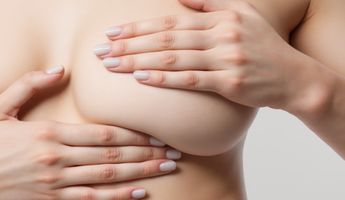
Find the best clinics for Breast Reconstruction in Hong Kong
No clinics available
India offers the best prices Worldwide
Price: $ 477

- Home
- Hong Kong
Compare Before & After Photos of _procedure_photos.phpBreast Reconstruction
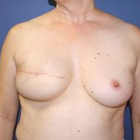
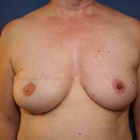
Front view
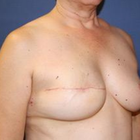
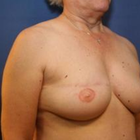
Half-side view
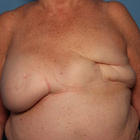
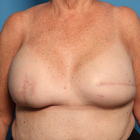
Front view
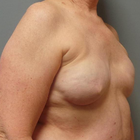
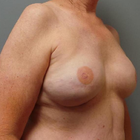
Half-side view
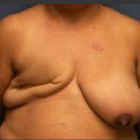
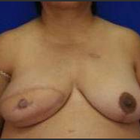
Front view
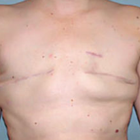
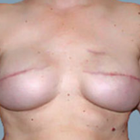
Front view
WHY US?
At Medijump, we're making medical easy. You can search, compare, discuss, and book your medical all in one place. We open the door to the best medical providers worldwide, saving you time and energy along the way, and it's all for FREE, no hidden fees, and no price markups guaranteed. So what are you waiting for?

Free

Best Price

Widest Selection

Risk-Free
What you need to know about Breast Reconstruction in Hong Kong
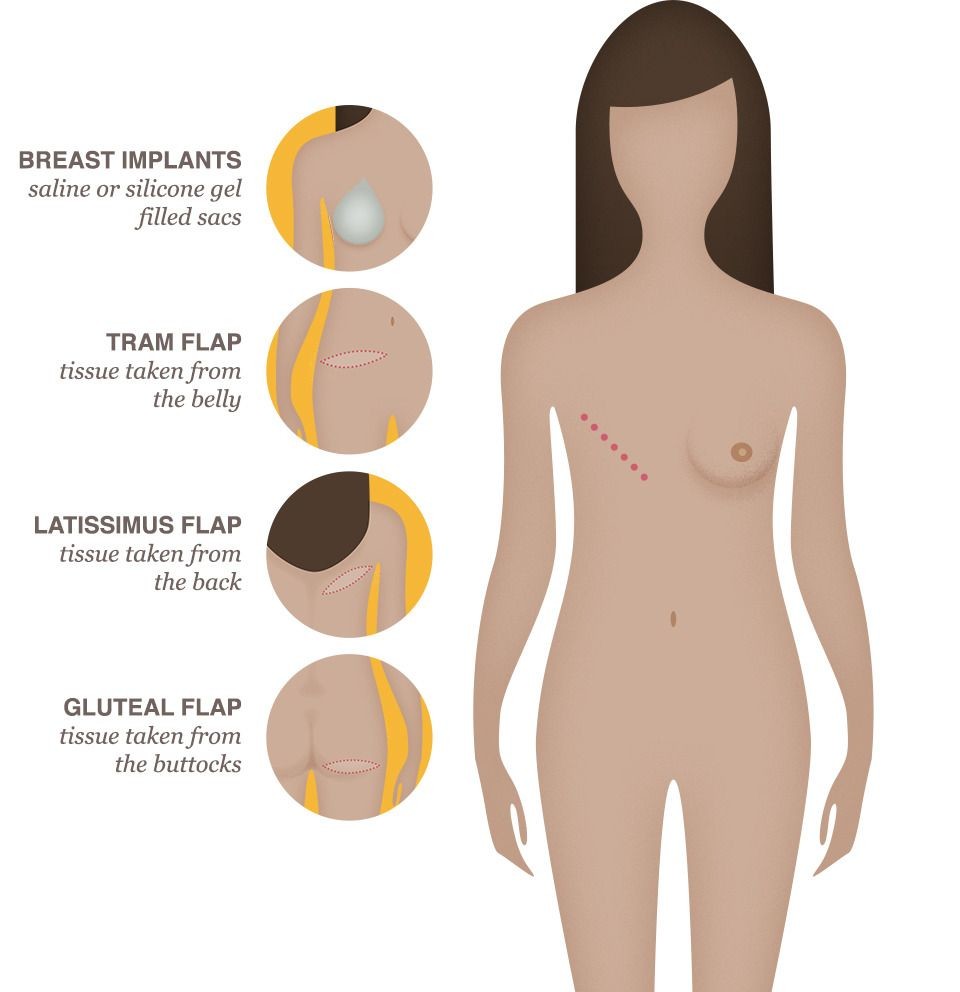
Breast reconstruction is a significant surgery undertaken to rejuvenate the physical form of a woman's chest after losing one or both breasts to cancer or another disease. In Hong Kong, medical centres are well-equipped with top-tier talent in plastic surgery to facilitate this intricate procedure. Every woman's journey is different, and her treatment plan is personalized, considering her unique circumstances and needs.
It's heartening to know that breast cancer treatments like chemotherapy or radiation therapy aren't impeded by reconstruction. Moreover, this surgery doesn't spike the risk of cancer coming back. Undeniably, breast reconstruction is a major surgery with inherent risks, including chances of infection, complications with wound healing, and potential dilemmas related to implants.
What is the cost of Breast Reconstruction in Hong Kong?
Undergoing surgery like Breast Reconstruction brings along a financial commitment. The expense varies extensively, depending on many factors like the complexity of the procedure, the medical professional performing the surgery, the hospital's facility, and the region, amongst others. Generally, the cost might range between $15,000 to $50,000, including multiple surgeries or intricate techniques within this estimate.
Thankfully, in many cases, insurance plans cover such surgical procedures, especially given mandates like the Women's Health and Cancer Rights Act of 1998 in the U.S. Still, out-of-pocket expenses associated with co-payment or deductibles can add up. It's recommended to navigate these aspects with your insurance provider and your chosen healthcare facility in Hong Kong.
What does a Breast Reconstruction Procedure Involve?
Breast reconstruction generally happens in stages, starting with the most complex first, which may either occur at the same time as the mastectomy or later, based on the individual’s specific health conditions or treatment plan.
Two main techniques are employed in breast reconstruction. One is the use of an implant, saline, or silicone to recreate the breast shape. Two, autologous or flap reconstruction where tissue from the patient’s body like the abdomen or thigh is relocated to recreate the breast shape. The method selected is dependent on individual factors like the patient’s health, personal choice, cancer type, and stage.
After the primary surgery and post an adequate healing period, the surgeon performs a second procedure to recreate the nipple and areola. Later, to give it a natural look, the nipple-areola complex is tattooed. Remember that although it is a common procedure, complications might arise involving reaction to anaesthesia, bleeding, infection, poor healing or the need for further interventions.
How Long Should I Stay in Hong Kong for a Breast Reconstruction Procedure?
Post-breast reconstruction surgery, patients typically stay in the hospital for two to five days. However, if the reconstruction was done immediately after the mastectomy, the stay could extend from three to six days.
Overall, a patient should expect to remain in Hong Kong for approximately two weeks post-surgery. This allows enough time for necessary follow-ups and to address any complications, if they arise. As with any major surgical procedure, do not hasten the healing process.
What's the Recovery Time for Breast Reconstruction Procedures in Hong Kong?
The recovery timeframe for breast reconstruction procedures in Hong Kong varies from patient to patient. Generally, for implant-based procedures, patients may take about four to six weeks to recuperate before they return to normal routines. For more complex autologous techniques, particularly those using abdominal tissue, patients might require six to eight weeks for recovery.
Recovering patients need to temper their activities during this period. Avoid lifting heavy objects and defer strenuous exercise until your physician gives a clear signal. Medical assistance should be promptly sought if any discomforting symptoms like chronic pain, redness or swelling surface.
What's the Success Rate of Breast Reconstruction Procedures in Hong Kong?
Medical success cannot just be measured in terms of complication-free postoperative progress or longevity of implants used in breast reconstruction. Patient satisfaction with their surgery, their psychological well-being following the operation, their perception of body image, and their quality of life post-surgery are equally important factors to consider. Studies indicate that between 85% to 90% of women who have undergone breast reconstruction are satisfied with the long-term results.
In Hong Kong, dedicated hospitals and healthcare facilities strive to offer high-quality treatment, ensuring the best possible surgical outcomes using progressive technology and experienced professionals. Still, everyone's response to surgery varies, and outcomes depend on factors such as overall health, age, body type, and compliance with surgical advice.
Are there Alternatives to Breast Reconstruction Procedures in Hong Kong?
Indeed, there are alternatives to breast reconstruction in Hong Kong. The journey of every woman is unique and how she chooses to deal with the loss of a breast, or both, is a highly personal decision. Alternatives include:
- Breast Prostheses or Forms: They are silicone forms that imitate the appearance and feel of natural breast tissue. They come in diverse sizes, shapes and colours to closely match the woman's skin tone.
- Flat Closure: In this method, the surgeons sew up the chest wound smoothly, without constructing a breast mound. This option appeals to women who choose not to have more surgeries or body implants.
- Opting not to undergo reconstruction at all, also termed as "going flat: This method exhibits the woman's choice to live comfortably with her new body shape without artificial substitutes or further surgeries. It is a fully personal decision deserving respect and support.
Each of these options has pros and cons, and the choice depends on the woman’s personal preference, health status, lifestyle, and perception of her body. Regardless of the choice, it’s important to regularly monitor breast health and engage in practices that promote overall wellness.
What Should You Expect Before and After the Breast Reconstruction Procedure?
Before the surgery, comprehensive discussions with the surgeon will take place to understand treatment objectives, outcomes, and possible complications. Preoperative tests, lifestyle modifications, and nutritional advice may form a part of the preparatory process.
Postoperative care is equally important: discomfort, swelling, and bruising are normal and subside over time. Pain management strategies will be provided to help you manage discomfort effectively. Your surgeon will provide personalised guidance on caring for your surgical site, usage of medications, and physical activities.
What sort of Aftercare is Required for Breast Reconstruction Procedures in Hong Kong?
The following points should be considered post-operation:
- Follow the instructions given by your doctor and take your medicines as and when prescribed.
- Consult a nutritionist for a diet plan. A healthy diet helps you recover faster.
- Do not wear a padded or underwire bra until allowed by your doctor.
- Use surgical bras in the early few days after the surgery.
- Avoid excessive unnecessary movement of your breasts.
- Do not lift heavy objects and children - it could stretch on your stitches.
- Change your bandage whenever it gets dirty. Germs can cause infection.
- Do not take a bath when the bandages are still intact. A wet bandage can also be the cause of infection.
- Abstain from sexual activity for at least 6 weeks.
- Take rest - give yourself time to recover.
How Do I Prevent Cancer from Recurring?
Preventing cancer recurrence largely revolves around a balanced, healthy lifestyle coupled with regular medical check-ups. Regular exercise, maintaining a healthy weight, and eating nutritiously can contribute to cancer prevention. Smoke cessation and limiting exposure to secondhand smoke are crucial for both prevention and postoperative recovery.
Regular breast self-examinations, as well as mammograms and follow-up visits, are critical for early detection of any recurrence. Stress management techniques like yoga, meditation, and spending time in nature can also play an essential role in overall health.
Your medical team in Hong Kong is there to support you, offering advice tailored to your individual health status and medical history. Remember, proactive health checks are key to maintaining overall health and preventing the recurrence of diseases like cancer.
What is the ideal time to have Breast Reconstruction surgery after a Mastectomy in Hong Kong?
The decision regarding when to have Breast Reconstruction following a Mastectomy in Hong Kong is largely based on the individual's health status, treatment plan, personal preferences, and discussions with the oncology team. Breast reconstruction can be done at the time of mastectomy (immediate reconstruction) or at a later date (delayed reconstruction). Immediate reconstruction might offer psychological benefits and less overall surgery since both procedures are done together. Yet, if additional treatments such as radiation therapy are required post-mastectomy, opting for delayed reconstruction could be advisable to avoid risks posed by radiation to the new construct.
Remember that deciding on the timing of breast reconstruction is a personal choice and should be made in consultation with your healthcare providers. They can provide specific guidance based on your health condition and treatment plan.
How Will Breast Reconstruction in Hong Kong Impact My Routine Mammograms and Breast Cancer Detection?
Breast reconstruction surgery may impact the way routine breast cancer screenings are conducted. After a mastectomy with or without reconstruction, women usually don't need routine screening mammograms on the treated side since all breast tissue has been removed. However, they would need routine mammograms for the untreated breasts.
If you've had reconstruction using your own body tissue, your surgeon or oncologist will guide you on whether or not you'll require mammograms on the reconstructed breast. Remember, mammograms can still be performed on reconstructed breasts, and self-breast exams should be a regular part of your health routine.
Whilst the information presented here has been accurately sourced and verified by a medical professional for its accuracy, it is still advised to consult with your doctor before pursuing a medical treatment at one of the listed medical providers
No Time?
Tell us what you're looking for and we'll reachout to the top clinics all at once
Enquire Now

Popular Procedures in Hong Kong
Prices Start From $497

Prices Start From $208

Prices Start From $834

Prices Start From $500

Prices Start From $93

Prices Start From $85

Recommended Medical Centers in Hong Kong for procedures similar to Breast Reconstruction

- Interpreter services
- Translation service
- Religious facilities
- Medical records transfer
- Medical travel insurance
- Health insurance coordination
- TV in the room
- Safe in the room
- Phone in the room
- Private rooms for patients available

- Interpreter services
- Translation service
- Religious facilities
- Medical records transfer
- Medical travel insurance
- Health insurance coordination
- TV in the room
- Safe in the room
- Phone in the room
- Private rooms for patients available

- Interpreter services
- Translation service
- Religious facilities
- Medical records transfer
- Medical travel insurance
- Health insurance coordination
- TV in the room
- Safe in the room
- Phone in the room
- Private rooms for patients available

- Interpreter services
- Translation service
- Religious facilities
- Medical records transfer
- Medical travel insurance
- Health insurance coordination
- TV in the room
- Safe in the room
- Phone in the room
- Private rooms for patients available
Breast Reconstruction in and around Hong Kong
About Hong Kong
The former British colony became a special administrative region of China in 1997, when Britain's 99-year lease of the New Territories, north of Hong Kong Island, expired. Hong Kong is governed under the principle of "one country, two systems", under which China has agreed to give the region a high degree of autonomy and to preserve its economic and social systems for 50 years from the date of the handover.
Hong Kong welcomes an ever-increasing number of medical tourists each year, many of which travel for Breast Reconstruction procedures. Hong Kong is a well-established hub for medical tourism, although it is better known for its quality and cutting-edge procedures than for cost.
Popular Parts of Hong Kong
Hong Kong is a blend of a dynamic cultural landscape with an astonishing skyline, glamorous shopping, as well as one of the world’s top culinary destinations.
- Victoria Peak (The Peak) offers the best view of Hong Kong’s modern skyline. It is the highest point on Hong Kong Island and the most visited spots by tourists. You can ride the tram to the top where you will find the Peak Tower and Peak Galleria. The peak is covered by a large park filled with incredible greenery.
- Big Buddha (Tian Tan Buddha Statue) is located in Lantau Island. It is one of the largest Buddha statues and took 12 years to complete. It is the perfect place for tourists who wish to get away from the hustle and bustle of the city. Surrounded by forest and ocean, the statue gives an incredible view. The best way to reach the Buddha is by riding the Ngong Ping Cable car which will take you on a spectacular ride over the forest.
- Wong Tai Sin Temple is one of the most popular temples in Hong Kong. It was named after the famous monk of yore, Wong Tai Sin. It is said that he has the ability to punish evils, heal the wounded, rescue the dying, and grant whatever is requested. The temple is also known as Sik Sik Yuen and has a traditional Chinese temple style.
- Temple Street Night Market is the best night market for tourists. Starting at 6.00 pm, it is the place to go if you want to taste Hong Kong’s street food. You can also find vendors selling gadgets, trinkets, clothing, household goods, jewelry, and traditional Chinese crafts. The place is brimming with atmosphere and it has served as the backdrop to many movies.
- Hong Kong Disneyland is a wonderful world for any Disney lovers. The park is divided into seven lands: Adventureland, Grizzly Gulch, Main Street, Mystic Point, Fantasy Land, Toy Story Land, and Tomorrowland. Here, you will find various adventures, parades, and musicals. In the evening, you can watch the fireworks over the castle.
- Star Ferry is a beloved icon of the city. It is said that your visit to Hong Kong will never be complete without cruising on the famous ferry. You can see the sparkling landscape of the city while enjoying the refreshing breeze.
Weather and Climate in Hong Kong
Hong Kong’s weather is influenced by the monsoon subtropical climate. The temperature is mostly mild all year round. May to September are the warmest months with an average temperature of 33 °C while mid-December to February are the coldest months with the temperature falling to 10 °C. Spring starts from March and ends in early May and the weather during this season is pleasant with many sunny days, but you can also have foggy, rainy, and stormy days.
The summer in Hong Kong is hot and humid with a perpetual threat of rain showers, thunderstorms, and sometimes even typhoons. Summer lasts for around four months from May to September. With August as the wettest month in the city.
The best time to visit Hong Kong is in the autumn, starting from October to early December when the days are generally sunny and the temperatures range from 22 °C to 28 °C. Winter is the holiday season in the city and the average temperature is around 16 °C to 18 °C but it can drop under 10 °C.
Getting Around in Hong Kong
The main gateway to Hong Kong is the Hong Kong International Airport. The airport is built on reclaimed land on the island of Chek Lap Kok and it serves international destinations to almost every major city in the world, including, Dubai, Amsterdam, Seoul, Canada, Singapore, and Sydney. For affordable travel, budget airlines such as AirAsia, Eastar Jet, and IndiGo are available. There are a wide variety of public transport services to and from the airport. The best options are Airport Express, public buses, and taxis.
To get around Hong Kong, it is best to purchase Tourist Day Tickets which gives you unlimited access to the main MTR and certain Rail lines for HK$65. If you are planning to stay longer in the city, the Octopus Card will be a big help. The card is reusable and can be used for almost every public transportation mode and you can buy the card for HK$150.
One of the fastest and easiest ways to get around the city is by the MTR (Mass Transit Railways) and it is one of the most advanced metro systems on the planet. The MTR operates 11 lines from 06.00 am to 01.00 am. The fare ranges from HK$3.6 to HK$52.6 depending on the distance.
The public bus is a great way to explore Hong Kong, especially the south side of the island and the New Territories. Most buses are double-decker and air-conditioned and it is an affordable way to get around the city and the fares will vary based on the distance traveled. Other public transportation modes such as tram and ferry are also available.
If you need a more flexible way of travel, taxis are easy to find and offer excellent value. There are three types of taxis, the red taxis operate throughout the city except for Lantau Island and the fares start at HK$24. The green taxis only operate in the New Territories and the fares start at HK$20.50. The blue taxis serve Lantau Island and the fares start at HK$19.
Tourist Visas in Hong Kong
Citizens of around 170 countries and territories may visit and stay in Hong Kong without a visa for up to 180 days. Other countries not listed in the visa-free entry such as Albania, Armenia, and Cambodia need to apply and obtain a visa before entering the country. All visitors must have a passport valid for at least one to six months beyond the date of entry to Hong Kong. Visitors can apply for a visa from their nearest Chinese embassy or consulate.
Additional Information
- Local Currency: The official currency is the Hong Kong Dollar. US$1 converts to HK$7.78.
- Money & Payments: Tourists can find ATMs almost everywhere, and most ATMs are linked up to international money systems such as Maestro, Cirrus, and Visa Electron. Credit cards are widely accepted. Tipping is generally not expected and restaurants usually add 10% to 15% service charge to your bill.
- Local Language: Most people in Hong Kong speak Chinese (Cantonese and Mandarin). However, English is also widely spoken since it is one of the government official languages.
- Local Culture and Religion: Many people in Hong Kong either follow Buddhism, Confucianism, or Taoism. Christianity is also one of the major religions in the city. Other religions such as Islam, Sikhism, Hinduism, Judaism, and the Bahá'í Faith are also freely practiced.
- Public Holidays: Hong Kong celebrates major religious holidays such as Lunar New Year, Ching Ming Festival, and Christmas.
Popular Searches
- Plastic Surgery in Thailand
- Dental Implants in Thailand
- Hair Transplant in Thailand
- Breast Augmentation Thailand
- Gastric Sleeve in Thailand
- Gender Reassignment Surgery in Thailand
- Laser Hair Removal in Bangkok
- Botox in Bangkok
- Dermatology in Bangkok
- Breast Augmentation in Bangkok
- Coolsculpting in Bangkok
- Veneers in Turkey
- Hair Transplant in Turkey
- Rhinoplasty in Turkey
- Stem Cell Therapy in Mexico
- Rhinoplasty in Mexico
- Liposuction in Mexico
- Coolsculpting in Tijuana
- Rhinoplasty in Korea
- Scar Removal in Korea
- Gastric Sleeve in Turkey
- Bone Marrow Transplant in India
- Invisalign in Malaysia
- Plastic Surgery in the Dominican Republic
- Tummy Tuck in the Dominican Republic
- Plastic and Cosmetic Surgery in Poland
- Rhinoplasty in Poland
- Hair Implant in Poland
- Dental Implants in Poland
- IVF in Turkey